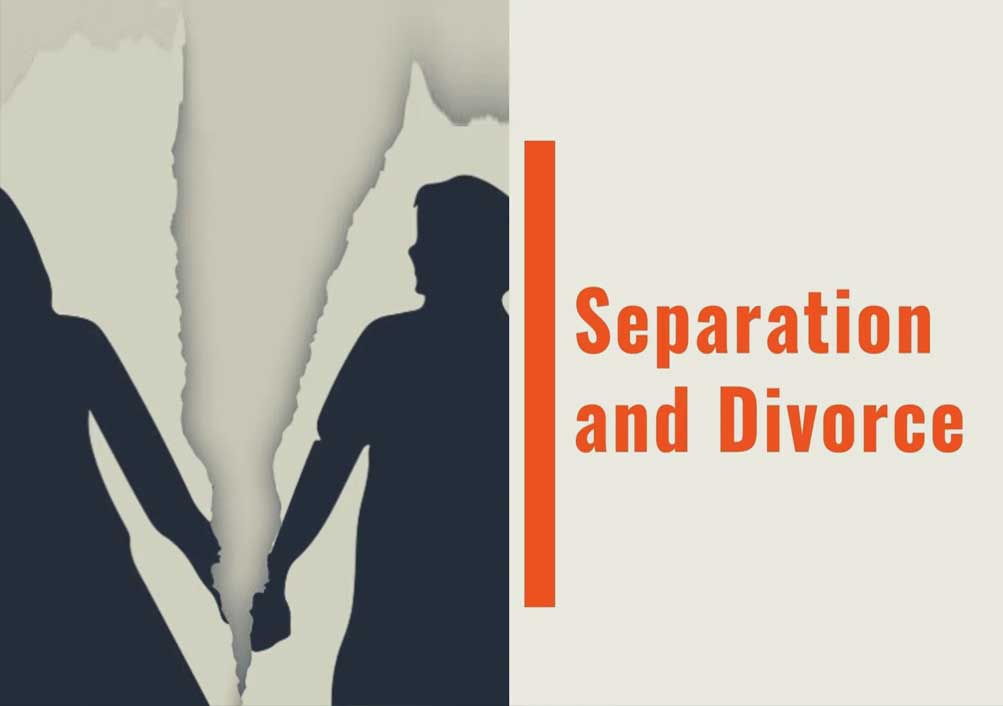Divorce should not be withheld if breakdown of marriage is irreparable, says P&H High Court while upholding divorce decree where wife was pregnant before marriage

Read Order: Sushma v. Sunil Kumar
LE Correspondent
Chandigarh, March 28, 2022: The Punjab and Haryana High Court has upheld the decision of a Family Court granting divorce decree to a husband against his wife as she had not disclosed the fact of her pregnancy which occurred prior to their marriage.
The Bench of Justice Ritu Bahri and JusticeAshok Kumar Verma added that in the present case, the marriage between the parties had broken down irretrievably and there was no chance of their coming together, or living together again. Further, not to grant decree of divorce would be disastrous for the parties, held the Court.
Additionally, the Court noted that it is well settled that once the parties have separated and separation has continued for a sufficient length of time and anyone of them presented a petition for divorce, it can well be presumed that the marriage has broken down.
The Court was approached with an appeal by the appellant-wife seeking setting aside of judgment and decree of the Additional District Judge, Panipat, whereby petition filed by the respondent-husband under Section 13(1) of the Hindu Marriage Act, 1955 (the HMA) for a decree of divorce by way of dissolution of marriage, was allowed.
The husband applied for the grant of a divorce decree on the ground that the appellant was already pregnant at the time of her marriage with the respondent. This act and conduct of the appellant amounted to cruelty, argued the husband. It was also the husband’s case that the behaviour of the appellant-wife was cruel towards respondent’s family members. The husband was also aggrieved of the fact that the Appellant left the company of the respondent in August, 2007 and despite numerous efforts never returned back.
Resultantly, the husband filed petition a petition under Section 13 of the HMA for a decree of divorce by way of dissolution of marriage, which was allowed by the Family Court, by the impugned judgment and decree of 2014.
After perusing the rival submissions, the Court opined that the appellant was pregnant even prior to the date of her marriage with the respondent and this fact was willfully concealed by her from the respondent and his family members. Further, the Court noted that after joining as JBT teacher, appellant developed some ego problem and started living separately from the respondent as he was unemployed and inferior to her.
From the above-said evidence on record, the Court was of the opinion that it was duly proved that it was the appellant who withdrew from the society of the respondent without any reasonable cause, and that no cogent and reliable evidence was led by the appellant to show that respondent withdrew himself from the company of the appellant without any sufficient reason or cause.
“Rather it is the appellant who has deserted the respondent for a continuous period of not less than two years immediately preceding of the presentation of the petition for divorce”, added the Court.
The next issue which came for consideration in the present appeal was regarding the relationship of the couple coming to an end and if the act of the appellant-wife in not giving mutual divorce to the respondent-husband, amounted to cruelty towards husband, keeping in view the fact that she was not staying with her husband for the last eleven years and there was no scope that they could cohabit as husband and wife again.
On this issue, the Court looked into the law laid down by the Supreme Court in Chandra Kala Trivedi vs. Dr. S.P.Trivedi, 1993 (4) SCC 232 wherein the Top Court was considering a case where marriage was irretrievably broken down and held that the decree of divorce can be granted where both the parties have levelled such allegations against each other that the marriage appears to be practically dead and the parties cannot live together.
Further reference was made to A Jayachandra vs. Aneel Kaur, 2005 (2) SCC 22 wherein the Supreme Court was considering the case of divorce on the basis of cruelty including mental cruelty. Herein, the Court emphasized that the allegation of cruelty is of such nature in which resumption of marriage is not possible, however, referring to various decisions, the Court observed that irretrievable breaking down of marriage is not one of statutory grounds on which Court can direct dissolution of marriage, this Court has with a view to do complete justice and shorten the agony of the parties engaged in long drawn legal battle, directed in those cases dissolution of marriage.
Coming to the present case, the Court opined that the marriage between the parties had broken down irretrievably and there was no chance of their coming together, or living together again. Further, not to grant decree of divorce would be disastrous for the parties, held the Court.
“The Court, no doubt, should seriously make an endeavour to reconcile the parties; yet, if it is found that the breakdown is irreparable, then divorce should not be withheld. The consequences of preservation in law of the unworkable marriage which has long ceased to be effective are bound to be a source of greater misery for the parties”, asserted the Court.
Dismissing the Appeal, the Bench concluded that the Family Court was perfectly justified in holding that there were hardly any chances that the appellant and the respondent could lead a happy married life because a lot of bitterness has been created in their relationship.
Sign up for our weekly newsletter to stay up to date on our product, events featured blog, special offer and all of the exciting things that take place here at Legitquest.




Add a Comment